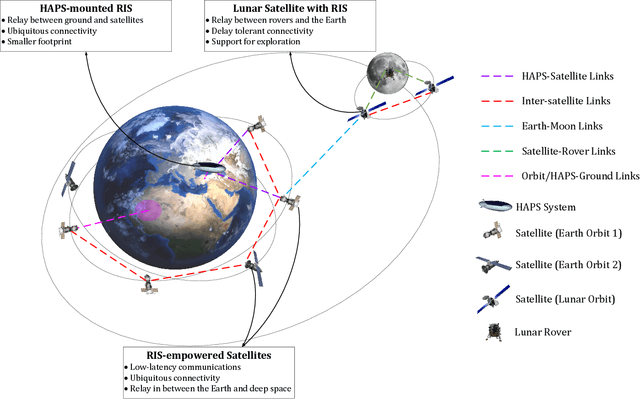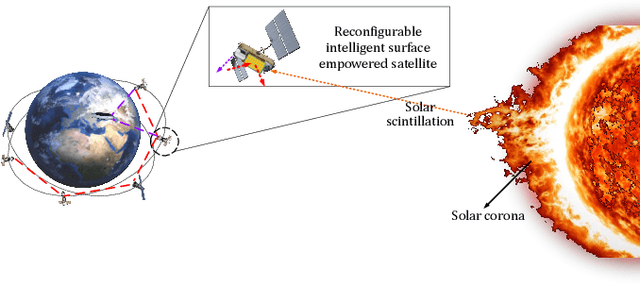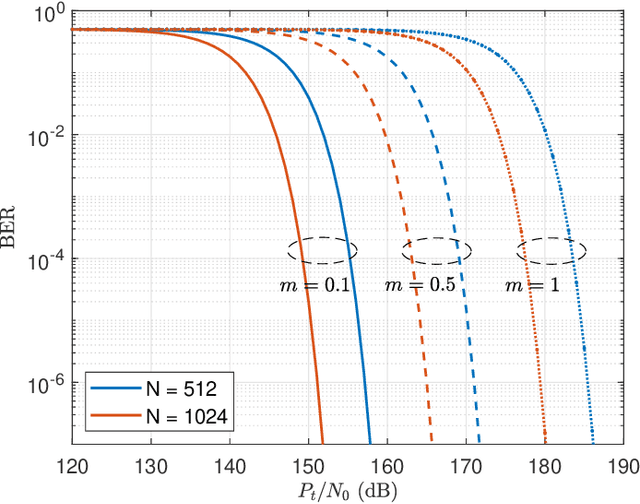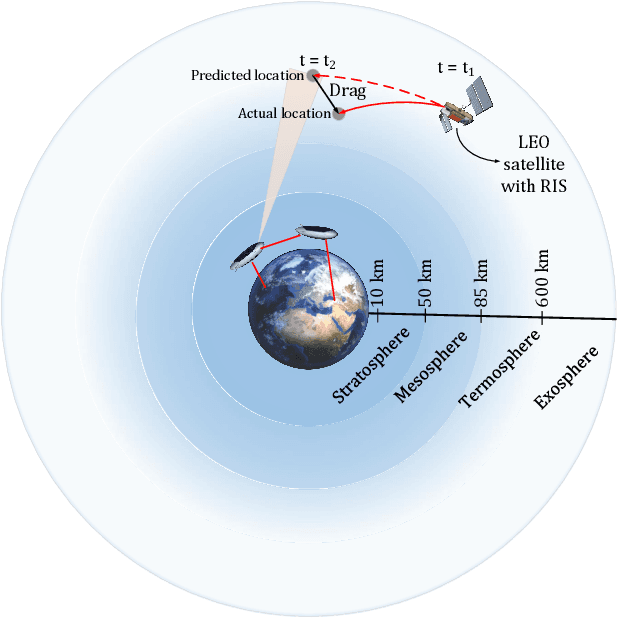Reconfigurable Intelligent Surfaces in Action for Non-Terrestrial Networks
Paper and Code
Dec 02, 2020



The next-generation communication technology is building on the cooperation of terrestrial networks with non-terrestrial networks that contain mega-constellations such as high-altitude platform station and low-Earth orbit satellites. On the other hand, humanity has embarked on a long road to establish new habitats in other planets by increasing its searches in space. This deems the cooperation of non-terrestrial networks with deep space networks necessary. In this regard, reconfigurable intelligent surfaces (RISs) are discussed to improve and escalate this collaboration owing to the fact that they perfectly match with the size, weight, and power restrictions of the operational environment of space. This study presents a comprehensive framework of RIS-assisted non-terrestrial and interplanetary communications by pinpointing challenges, use cases, and open issues along with simulation results.
 Add to Chrome
Add to Chrome Add to Firefox
Add to Firefox Add to Edge
Add to Edge